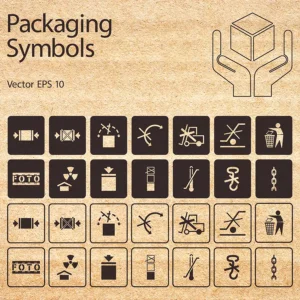
More than 40 years of experience and an active commitment to quality cosmetics lead one to reflect on the impacts and perspectives of packaging. Where plastic is too often demonised, some considerations can be useful to look at its impact on the environment from a different point of view. Production and regeneration are things to consider; cosmetics can also change perspective.
Albogroup has designed and created the Solid.O Original line, a collection of solid hotel cosmetics. This line makes the transition from liquid to solid easier by eliminating the need for airtight containers and encouraging the use of recyclable packaging.
Plastic: Enemy or Ally of Sustainability?
It is a bit like the Odi et amo of materials in the postmodern era, plastic is the useful thing that everyone criticises but no one could do without. Images of plastic islands in the oceans, but also plastic waste high up on Everest are inputs that do not help the material’s notoriety at all. There is one thing of substantial value, however: a plastic container does not pollute if man is not there to abandon it where it should not. Seeing plastic as an enemy may not fully frame the problem; the benefits are not to be overlooked.
Waterproofness, resistance to reuse and chemical stability are some of the prerogatives attributed to the material. Plastic has been part of everyday life for more than 150 years, and even packaging in cosmetics has always made extensive use of it. Considerations in terms of environmental impact would come naturally, but reality may, however, exonerate – at least in part – polymeric materials.
There is a small consideration to be made: a bottle of shower gel, even when the detergent has run out, can be just as useful as a container for liquids. A jar of face cream could become a jewellery box, that’s how small gestures are allies of sustainability: is this more to do with plastic or man?
Energy Comparison of Plastic and Glass Production
The common perception regarding the impact on the environment is particularly curious. Just by comparing plastic with glass, the belief is often that glass has a more ecological aura. Approximately 1,600°C are required for the melting process that is indispensable for the production of glass artefacts and containers, while just 230°C is the temperature at the tip of an extruder in the plastic production process. It is enough to start from this figure to draw initial conclusions.
What is the energy cost of glass production? Definitely high and mostly from gas and other fossil fuels; here the energy impact of the material is further tested by the carbon footprint of the production process. Then there is the production of carbon dioxide and sulphur dioxide, produced in the glassmaking process. Soda ash and silica sand are the other necessary ingredients. The result is an increase in land exploitation and the impact of mining. Plastic is a polymer, the monomers carbon and methane are the building blocks; however, its production requires less energy, which cannot necessarily be obtained by burning fossil fuels.
Contact us for more information on the services
More sustainable future
The purpose of this in-depth study is certainly not to demonise other materials in order to praise the virtues of plastic. The past teaches us that the non-reuse of plastics has been the cause of real environmental disasters; one only has to analyse the waters of the seas to realise how plastic polymers have now become part of their “unnatural” composition. However, the future draws cues from the past and points straight towards innovation. Today’s technologies enable the regeneration of plastics, triggering a true virtuous cycle.
Steam and high temperatures break down the molecules of plastic to obtain the hydrocarbon bricks; the result returns the fossil fuels from which it started. Plastic once again proves itself ready to take on the shape that – even cosmetic packaging – wants to give it. What might appear to be enemy number one actually turns into the ally of a more sustainable future. More than 40 years of experience also in cosmetic packaging teach us: solving plastic pollution is possible, but the future lies in responsible cooperation by all.
Albogroup, contract manufacturing of solid cosmetics
Plastic is not the real evil of the world, all that is needed is the will to truly save our planet from its plight. Concrete gestures are needed, classic greenwashing campaigns can only doom our common future in the name of fictitious environmental causes. The past has produced too many plastics. It is therefore time to reuse those already in the environment.
The Solid.O Original line is Albogroup’s answer even in the most prestigious hospitality establishments. Moving from liquid to solid no longer requires the use of airtight containers, so paper and recyclable materials reinterpret the packaging. From intimate cleansers to shampoos, the solid formulation is the concrete alternative towards optimising resources. Cosmetics, plastics and sustainability can meet in the name of the common good.
Contact Albogroup if you want to contract produce your own line of solid cosmetics.


